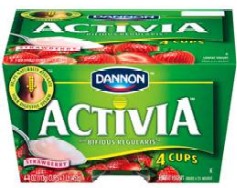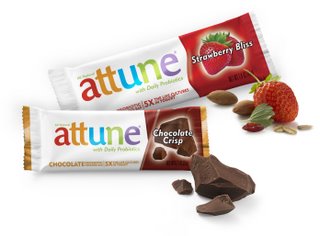Apparently, probiotics have been used for centuries as natural components in health-promoting foods and upon transportation to the United States, they have sparked a huge growth in the yogurt industry for their claims of increased immune response as well as sufficient promotion toward digestive health.
The human digestive system contains over 500 million "good" bacteria which are critical to the secretion and absorption of nutrients that the body needs to sustain itself. These bacteria also function in forming a barrier against ingested substances that may pose harmful to the body. The digestive system provides an important role in the protection against pathogenic bacterial overgrowth and aids overall in the correct function of the immune system.
Probiotic literally means "for life" and according to the World Health Organization, probiotics are live microorganisms which provide measurable health benefits when consumed in adequate amounts. These benefits are ultimately dependent on the specific strain of bacteria but the general feedback for consumption is the following:
Lowering of both cholesterol and blood pressure, improvement of immune function, strengthening of the intestinal wall, aid in the prevention of infections, managing of lactose intolerance, and prevention of the growth of harmful bacteria when under stress.
Physical or psychological stress, illness and even menopause can disrupt the normal balance of bacteria, allowing harmful bacteria to make their way into the body and out-grow the good bacteria in the intestine. Probiotics help to restore the body's capability to strengthen itself from the inside out, boosting the immune system, especially while in this winter's cold season.
"Seventy percent of our immune response is directed toward catching foreign invaders introduced through our guts," says Roberta Lee, medical director at the Continuum Center for Health and Healing in New York City. It's important to supply the necessary materials needed to boost our immune systems, and probiotics are just the thing.
Since probiotic microorganisms do not permanently adhere within the digestive tract but metabolize and grow during their passage through the intestine, it's necessary to continually replenish them. That said, daily consumption is best recommended to receive full effectiveness of the bacteria. Most yogurt companies suggest a daily consumption of yogurt between two and four weeks, but there is no scientific basic behind those numbers (probably just an enticing seller's point.)
You've probably realized by now that regular yogurt already contains live active cultures, so why do you need one with a probiotic label? Well, the significant difference between those marketed as probiotics and those that aren't is the amount of bacteria they contain. Not all live active cultures are the same and not all cultures are probiotics... Probiotic yogurts contain additional bacteria with stronger health benefits than just live cultures alone and, unlike active cultures, probiotic components are able to reach the intestine while still alive, allowing the bacteria to successfully aid in digestive health.
When selecting a probiotic yogurt, choose one that contains proven clinical evidence of health benefits. Such species include Lactobacillus Bacteria (L. Gasseri, L. Johnsonii, L. Lactis, L.Casei, L. Reuteri, L. Acidophilius) and Bifidobacteruum (B. Bifidum, B. Lactis, B. Breve, B. Longus).
Today, the yogurt aisle is racked with many types of Probiotic yogurts and these are just a few examples of what to look for in your yogurt:
Yoplait Yo-Plus™
In addition to containing probiotics, Yoplait Yo-Plus contains a prebiotic formula compromised of insulin and a natural dietary fiber that helps keep the beneficial cultures happy. Their duo is named Optibalance™ and promotes better absorption of the bacteria S. Thermophilus , L. Bulgarius, and Bifidobacterium Lactis Bb-12 which are sufficiently provided in this yogurt. Yo-Plus is a good source of calcium, vitamin A and vitamin D, has only 110 calories and 1 1/2 grams of fat per serving.
Dannon Activia®
 Advertised to regulate digestive health with their scientifically named Bifidius Regularius™ compound. The scientific name of the Bifidus Regularis is Bifidobacterium animalis DN-173 010 and is stated to help with slow intestinal transit. In addition to probiotics, Activia is a good source of protein, calcium, Riboflavin, Vitamin B12, fiber and Phosphorus. Activia is also one of the few probiotic yogurts that also comes in Light(non-fat)!
Advertised to regulate digestive health with their scientifically named Bifidius Regularius™ compound. The scientific name of the Bifidus Regularis is Bifidobacterium animalis DN-173 010 and is stated to help with slow intestinal transit. In addition to probiotics, Activia is a good source of protein, calcium, Riboflavin, Vitamin B12, fiber and Phosphorus. Activia is also one of the few probiotic yogurts that also comes in Light(non-fat)! From the makers of Activia, "Two weeks of eating Activia every day, as part of a balanced diet and healthy lifestyle has been clinically proven to help regulate your digestive system, by helping with slow intestinal transit - and continuing to eat it will help maintain that benefit." Try it for yourself!
Dan Active Immunity™

From the makers of Dannon, this drinkable yogurt contains
S. theromphilus, L. Bulgarius, and L. Casei Immunitas™ which is a fancified name for the Lactobacillus Casei bacterial strain. DanActive provides calcium and can also be tolerated by those who are lactose and tolerant because the cultures break down the lactose while the product metabolizes. This product is also certified Kosher.
Attune Bars®
Although not specifically marketed as a yogurt substance, these bars are found in the yogurt aisle and contain up to "5x the active cultures of yogurt and less sugar". Attune uses a blend of three different Kosher and GRAS certified probiotic strains selected specifically for their superior clinical efficiency and safety as well as demonstrated stability. Bacterial strains found in this product include Lactobacillus Acidophillus NCFM, Lactobacillus Casei Lc-11 and Bifidobacterium Lactis HN109.

Everybody differs as does everybody's digestive system differ. Effects of probiotics vary per indivudual and thus should be experimented with to recieve maximum benefits for your own unique digestive system.






Comments